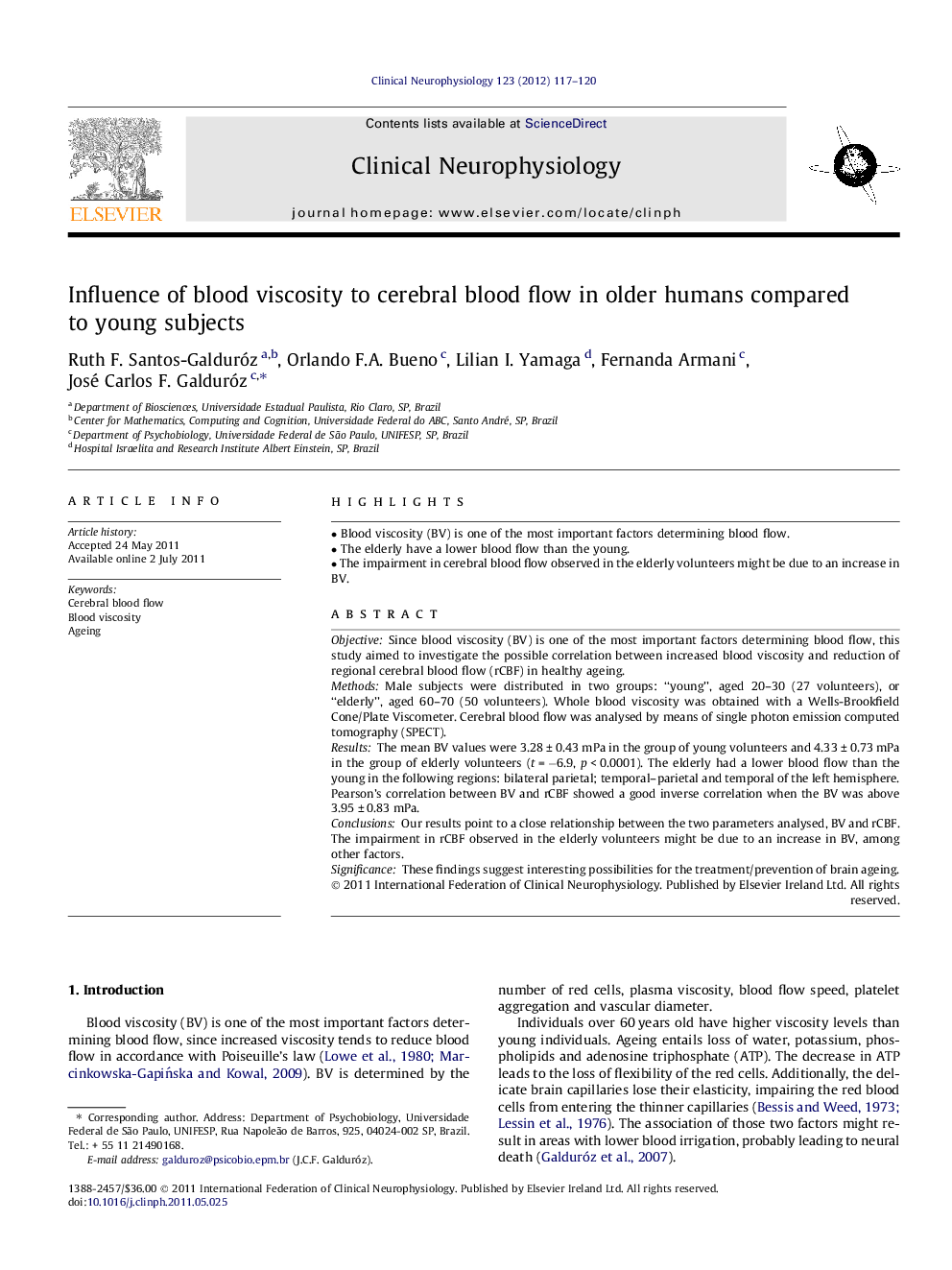| Article ID | Journal | Published Year | Pages | File Type |
|---|---|---|---|---|
| 3043838 | Clinical Neurophysiology | 2012 | 4 Pages |
ObjectiveSince blood viscosity (BV) is one of the most important factors determining blood flow, this study aimed to investigate the possible correlation between increased blood viscosity and reduction of regional cerebral blood flow (rCBF) in healthy ageing.MethodsMale subjects were distributed in two groups: “young”, aged 20–30 (27 volunteers), or “elderly”, aged 60–70 (50 volunteers). Whole blood viscosity was obtained with a Wells-Brookfield Cone/Plate Viscometer. Cerebral blood flow was analysed by means of single photon emission computed tomography (SPECT).ResultsThe mean BV values were 3.28 ± 0.43 mPa in the group of young volunteers and 4.33 ± 0.73 mPa in the group of elderly volunteers (t = −6.9, p < 0.0001). The elderly had a lower blood flow than the young in the following regions: bilateral parietal; temporal–parietal and temporal of the left hemisphere. Pearson’s correlation between BV and rCBF showed a good inverse correlation when the BV was above 3.95 ± 0.83 mPa.ConclusionsOur results point to a close relationship between the two parameters analysed, BV and rCBF. The impairment in rCBF observed in the elderly volunteers might be due to an increase in BV, among other factors.SignificanceThese findings suggest interesting possibilities for the treatment/prevention of brain ageing.
► Blood viscosity (BV) is one of the most important factors determining blood flow. ► The elderly have a lower blood flow than the young. ► The impairment in cerebral blood flow observed in the elderly volunteers might be due to an increase in BV.
